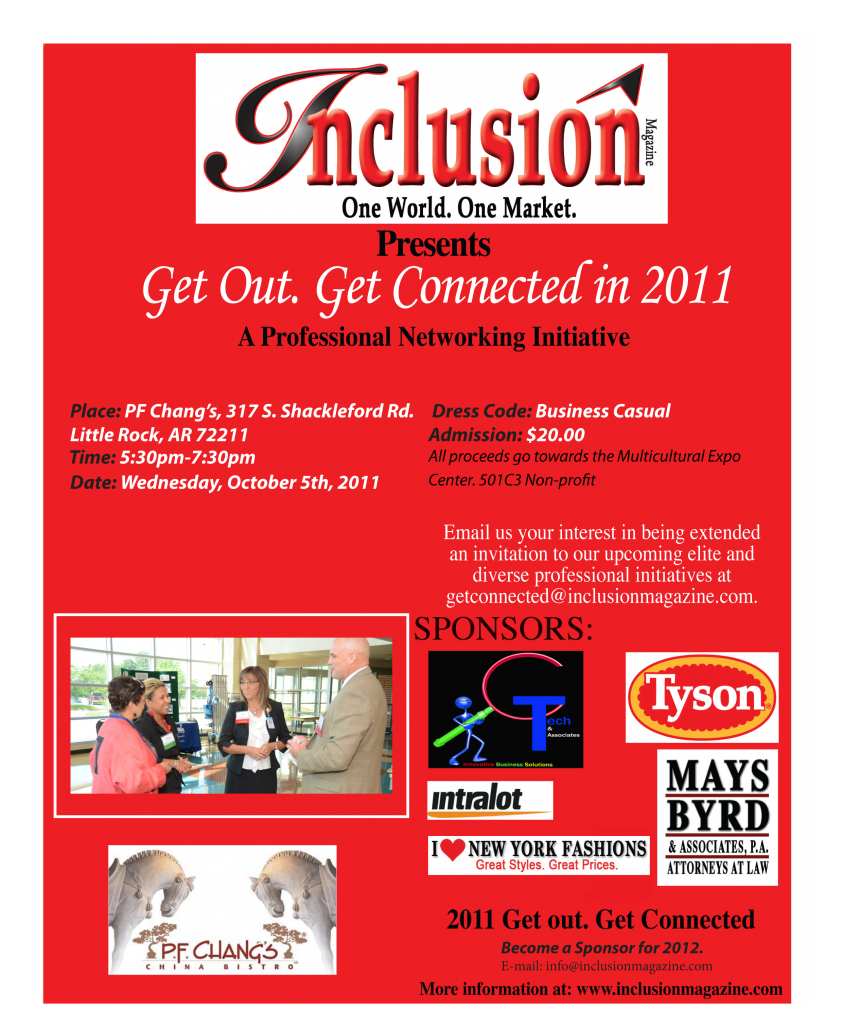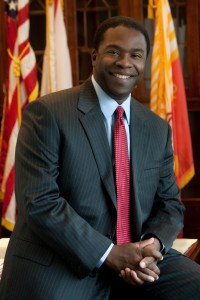 PF Chang’s 317 S Shackleford Rd.
PF Chang’s 317 S Shackleford Rd.
Little Rock, AR
by: S. L. Baker
Breast cancer is a serious concern for women. According to the National Cancer Institute, the disease took about 50,000 lives last year in the U.S. alone. But the mainstream media, as well as mainstream medicine, often treat breast cancer as something that strikes out of the blue — giving women no choice but to hope they are not one of the “unlucky” ones to get breast cancer. At the same time this subjects women to mammography so a malignancy can be spotted early, despite the fact the actual radiation exposure associated with mammograms is known to raise the risk of breast cancer in some women
But here’s good news. Scientists studying natural compounds in plants are finding many may offer some level of protection against breast cancer. That means women can start taking control of their breast cancer risk by paying attention to what they eat and drink. In detailed research just published in BioMed Central’s open access journal Breast Cancer Research, scientists from Sweden’s prestigious Karolinska Institute present compelling evidence that something in coffee slashes the risk of breast cancer.
The new study concludes that drinking coffee specifically reduces the risk of what researchers call anti-estrogen-resistant estrogen-receptor (ER) negative breast cancer, dubbed ER-negative breast cancer for short.
The Sweden research team compared lifestyle factors and coffee consumption between women with breast cancer and women the same age that did not have any breast malignancies. It turns out that coffee drinkers had a far lower incidence of breast cancer overall than women who rarely drank coffee.
Delving further into the impact of coffee, the scientists looked at several lifestyle factors that affect breast cancer rates, including age at menopause, exercise, weight, education, and a family history of breast cancer. Once they had adjusted their data to account for all of these factors, they found that the protective effect of coffee on breast cancer zeroed on one type of the disease — the ER-negative breast cancer.
Although the evidence appears strong that coffee has beneficial effects in protecting women from ER-negative breast cancer, it’s not clear just what the mechanism and compounds involved are. The researchers noted in a statement to the media that the protection from coffee may be due to way the coffee is prepared, or perhaps the type of coffee bean used.
Bottom line: as NaturalNews has reported previously, the new coffee study is the latest in a growing body of scientific data showing that natural substances are formidable weapons to both prevent various types of breast cancer and even halt cancerous growth once cells are malignant.
For example, in a study published in the journal Crop Science, Colorado State University scientists studied the anti-cancer activity of six kinds of dry legumes and found consumption of every kind of bean reduced the incidence of cancer and tumors in animal models . In addition, Elaine Hardman, PhD, associate professor of medicine at Marshall University School of Medicine, gives this advice to women based on her cancer research: eat more walnuts. Her research strongly suggests those nuts can substantially reduce the risk of breast cancer.
Weight loss is a kind of topic that everyone is always speaking about. It seems that you can’t go anyplace without seeing or hearing some type of weight loss message. Tales of the risks of not shedding weight seem to be in every medium. Shops and the Web are full of weight reduction books and products. Weight loss is mentioned in medical centers and at schools and even within the work place. If you’re trying to reduce weight, listed below are a number of tips to get you going.
Tip 1: Stop Talking About Weight Loss!
All that talk about how you need to lose weight isn’t going to make the burden better. You need to take action, beginning now. So take this straightforward advice: Cease moving your mouth and start moving
your body! It may take patience and perseverance to start seeing the results, but they’ll be worth it!
Tip 2: Consistency is Greatest
Sluggish and steady weight reduction is healthier (and safer) than driving the dieting roller coaster. In case you’re on the lookout for long-lasting weight loss results, purpose to lose a median of about two kilos eachweek. To be able to lose weight you have to consume less energy than you burn. As a bonus, while you combine a weight-reduction plan with exercise, you’ll be lowering your caloric intake and increasing your caloric burn price at the same time.
Tip 3: Save Your Money
Don’t spend your hard-earned money on the latest weight reduction gimmicks. Capsules, fad diets, hypnosis, and excessive surgical procedures should not be the answer! These gimmicks won’t slim you down, however they’ll fatten the financial institution accounts of those who promote them! Eating a nutritionally-balanced food plan of fruits, greens, good fats and lean proteins will promote weight loss faster than any miracle treatment
you’ll be able to buy.
Tip 4: Weight Loss is a Means of Life
Sadly, the issue of weight is something that most people will struggle with throughout life. Excess processed meals and a sedentary way of life are the two greatest contributors to this constant struggle. If you wish to drop some pounds and keep it off, you need to vary the way you concentrate on food. It must be thought of as a supply of gasoline, not a passion. Successful weight reduction really is about making changes in your way of life, including meals choices and sticking with them.
Tip 5: Weight Loss is More Than A Number
During your weight-reduction plan, don’t become a victim of the dreaded scale. When the numbers go down, happiness goes up. When the numbers keep the same or go up, it is straightforward to surrender and give in. Do not forget that even when your weight isn’t changing as you want to, your body is. You’ll be taking better care of your heart. You’ll be reducing your cholesterol levels. You’ll be sporting a leaner physique and your clothes may start becoming looser!

On May 17, 2011 Jacksonville voters chose Alvin Brown to lead the city. The first Democrat in 20 years to be elected mayor of Jacksonville, Brown is also the first African American to hold the position. He assumed office July 1, 2011. Brown ran on his vision of “taking Jacksonville to the next level” through job creation, Downtown revitalization, and making education and public safety top priorities.
Prior to the election, Brown served as an Executive in Residence at Jacksonville University’s Davis School of Business. He is the past president and CEO of the Willie Gary Classic Foundation, an organization that helps provide scholarships for historic black colleges.
Brown served as the executive director of the Bush/Clinton Katrina Interfaith Fund. He was responsible for overseeing the distribution of more than $20 million to houses of worship throughout the Gulf Coast so that they could begin rebuilding after the disaster resulting from hurricane Katrina. Brown successfully set policy and procedures that enabled more than 1,100 houses of worship to apply for funding by the closing date of July 31, 2006.
Brown also served as chairman of the board of the National Black MBA Association. As chairman of an organization representing more than 100,000 MBA graduates, Brown encouraged young people to pursue higher education and to develop their leadership potential by greatly enhancing the scholarship program of the organization. Brown engaged in significant fundraising that positioned the organization as a premier group in the world of education and business leadership. He fostered relationships with colleges, business schools and with corporations that recognize the value of a diversified portfolio. He has been a champion of restoring public confidence in corporate America and, in the wake of numerous corporate scandals, called on business schools throughout the country to mandate ethics in their curriculum.
In Washington, D.C., Alvin Brown served as a senior member of the Clinton-Gore Administration beginning in 1993. As Vice President Al Gore’s senior advisor for Urban Policy and vice chair of the White House Community Empowerment Board, Brown advised both the vice president and President Clinton on a wide range of domestic issues, including community revitalization, job creation, new business development and expansion of the supply of affordable housing.
Brown led the Clinton-Gore Administration’s $4 billion overall community empowerment initiatives, with a special emphasis on the Empowerment Zone/Enterprise Community program which included the new market tax credit initiatives. The highly successful programs helped revitalize economically impoverished urban and rural communities and generated unprecedented levels of public-private partnerships resulting in more than $10 billion in private investments to the designated communities.
Brown was also co-chair of the White House Task Force on Livable Communities focusing on urban sprawl and smart growth prior to his work at the White House. He held a number of key positions within the administration, including senior advisor to the late Commerce Secretary Ron Brown and senior advisor to former U.S. Secretary of Housing and Urban Development Andrew Cuomo. While at HUD, Brown was responsible for overseeing the Department’s $100 million disaster recovery initiatives, which included leading an overhaul of the Department’s disaster response effort. Brown first came to Washington, D.C. to work as an intern for U.S. Sen. Bill Nelson (D-FL) while Nelson was serving in the U.S. House of Representatives. He then served on the Clinton-Gore transition team.
While Brown has spent many years in government service, he also has an extensive background in the private and non-profit sectors.
Brown graduated from Jacksonville University where he earned a B.S. and an MBA. He also completed postgraduate work at the Kennedy School of Government at Harvard University. He received an honorary doctorate from Edward Waters College in Jacksonville.
Brown is the recipient of the Frederick Douglass Award from the Southern Christian Leadership Conference, the Excellence in Community Service Award from 100 Black Men of America, the distinguished Award for Government Services from the National Baptist Convention, and the Chairman’s Award from the Congressional Black Caucus. In addition, the National Black MBA Association honored Brown with the prestigious H. Naylor Fitzhugh Award.
Brown and his wife Santhea have two sons, Joshua and Jordan.
TODAY, THERE ARE LOTS OF THINGS YOU CAN DO AT HOME and earn extra money from it. Thanks to the internet that made many things possible. Online jobs are now the most popular part time jobs for housewives, employees, students, and retirees while it is also the primary source of income for some businessmen and unemployed individuals. The internet has become an income generating system that is providing lots of opportunities which have greatly benefit people in our societies. People making money online are now capable of venturing to extra jobs largely to cope up with the hardest of times although previously we use the internet for communication purposes only.
However, some people may ask what would be the necessary skills to have a promising online opportunity. In actuality, nothing much. All you need is your computer, your internet connection, your passion to do the things you want to do and according to the companies who hire people online, patience. Online jobs are offered in many varieties of ways and any individual who is aware on what he can do may easily choose which of these opportunities could suit his skills. For example, if you love to write, there are freelance companies that can accept your blogs and web content articles. If you have a higher skill in writing you can even create essays, research papers, and advertisement articles for other companies  and so on.
and so on.
For older people who are capable of filling out survey forms and have the luxury of watching movies or TV shows or reading books, there are online paid surveys and paid reviews. Almost everybody who is at the right age and capable to use his or her computer can earn from internet jobs. People making money online can earn as much as $300 up to $1,000 a month if they can work full time. Sometimes even bonuses are given to those who work on monthly base incentives and have good performances.
The most popular prospect which is online selling is still one of the hottest online jobs in the internet market today. People now are not only selling commercial products or selling other people’s products as in affiliate marketing but even homemade accessories, home baked food specialties and personalized items and this kind of personal business is now becoming a lucrative business.
For those who have technical skills in graphic designing, WordPress, webmaster and other technical online skills, they can create good income by offering services to businessmen who have businesses online. Virtual assistance is also another prospective opportunity since businessmen need assistance in managing their sites and online businesses and if you are an employee or a housewife who does know administrative jobs, this job would be great for you to work on while at home.
There are so many projects and opportunities you can actually do online and you don’t have to wonder why people making money online are earning much, much more than other ordinary employees are earning. You just have to Google the words online jobs, online opportunities and so on and you will be presented with so many prospects.
MANY PEOPLE BELIEVE THAT ACCORDING TO THE ANCIENT MAYAN CALENDAR, the world is coming to an end in 2012. The concept has even spurred a blockbuster movie, 2012, in which the world is overtaken by massive earthquakes, tsunamis, and other natural disasters. Supporters of this theory believe that the world will end in December of 2012, with the end of the world caused by an earthquake, a solar flare, or some other natural disaster. Whether you believe the hype or not, the recent media surrounding 2012 does bring to light the importance of preparing for every possibility. Even if it isn’t technically the end of the world, a natural disaster can sure seem like it, as your home and belongings are ruined and you are forced to adapt to whatever s left. No matter where you live in the world, natural disasters of some type are a distinct possibility. It may be earthquakes, tornadoes, or hurricanes, but you ll never know exactly when they will strike. The only thing you can do is to be prepared for such eventualities. Making the right preparations ahead of time requires considering the type of disaster most likely to strike your region, as well as your family s unique needs if you were to fend for yourselves for a week or more. Some Practical Precautions Every home should have a disaster kit containing water, food, first aid supplies, and other necessities for every member of the household. Don’t forget medications, blankets, and flashlights. You ll also need duct tape, plastic sheeting, and other simple building materials to build a shelter or make your home inhabitable following the catastrophe. Your emergency kit must be immediately accessible, not buried somewhere on a shelf in the garage where it will likely do you no good in your time of need. Consider placing emergency supplies in the most structurally sound areas of the home, as well as the areas where you re likely to run in the event of an earthquake, tornado, or other natural disaster. In addition to having an adequate stock of emergency supplies, it s also important to know how to care for your house during a natural disaster. Earthquakes, for example, can cause fires, water leaks, and other damage to your home. Every homeowner should know where the main switches to theutilities are located so that they can be turned off if necessary. Families should also practice a disaster plan. In the aftermath of a catastrophe that has ruined your house, what should you do? What if you were not all at home when the disaster struck? Where will you regroup? Every family member must know what to do in this scenario, so that they can do the right thing when panic and confusion set in. Whether you believe it s the end of the world or not, would you be prepared for a cataclysmic event? Whether the predictions turn true or not, we should all be prepared for common natural disasters. You can’t prepare for every possibility, but there is no excuse to not have the basic necessities that you d need in the event of an earthquake or major storm.